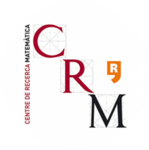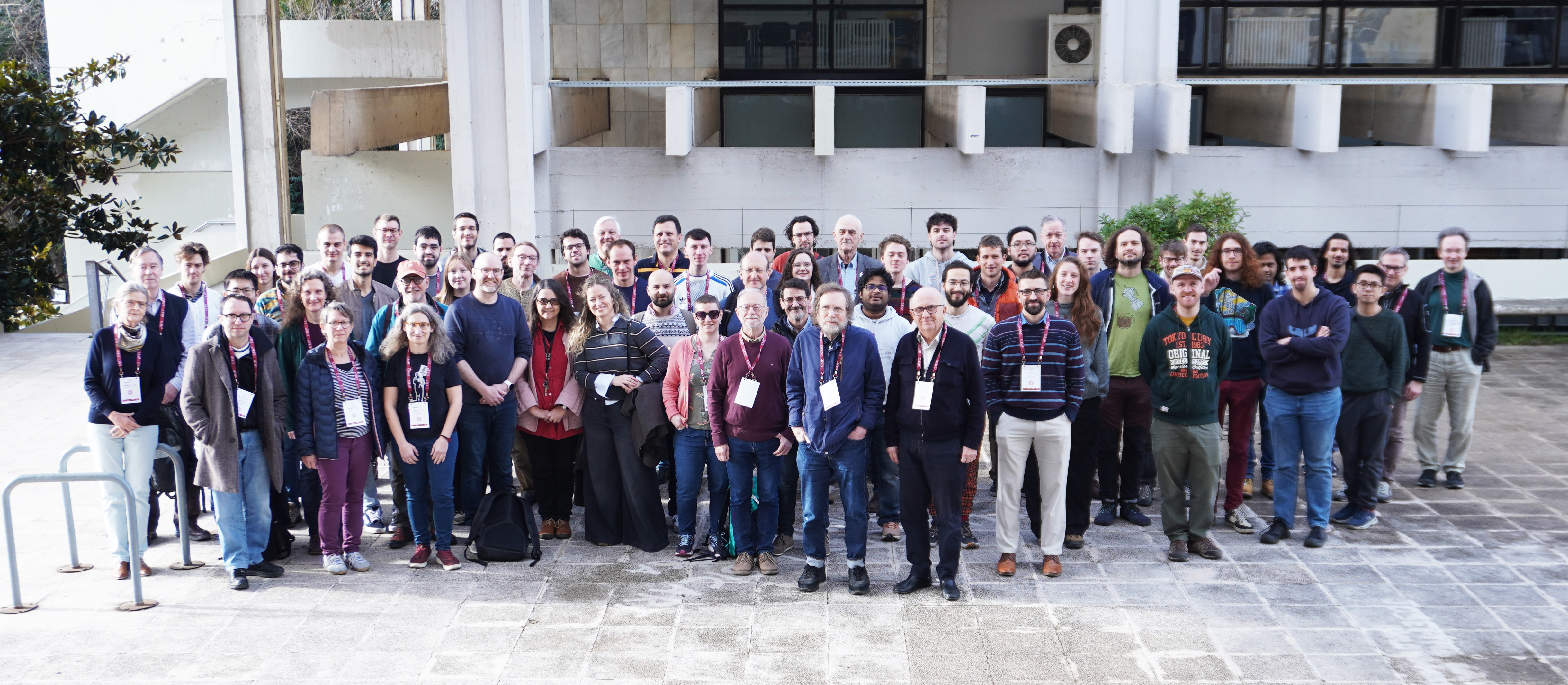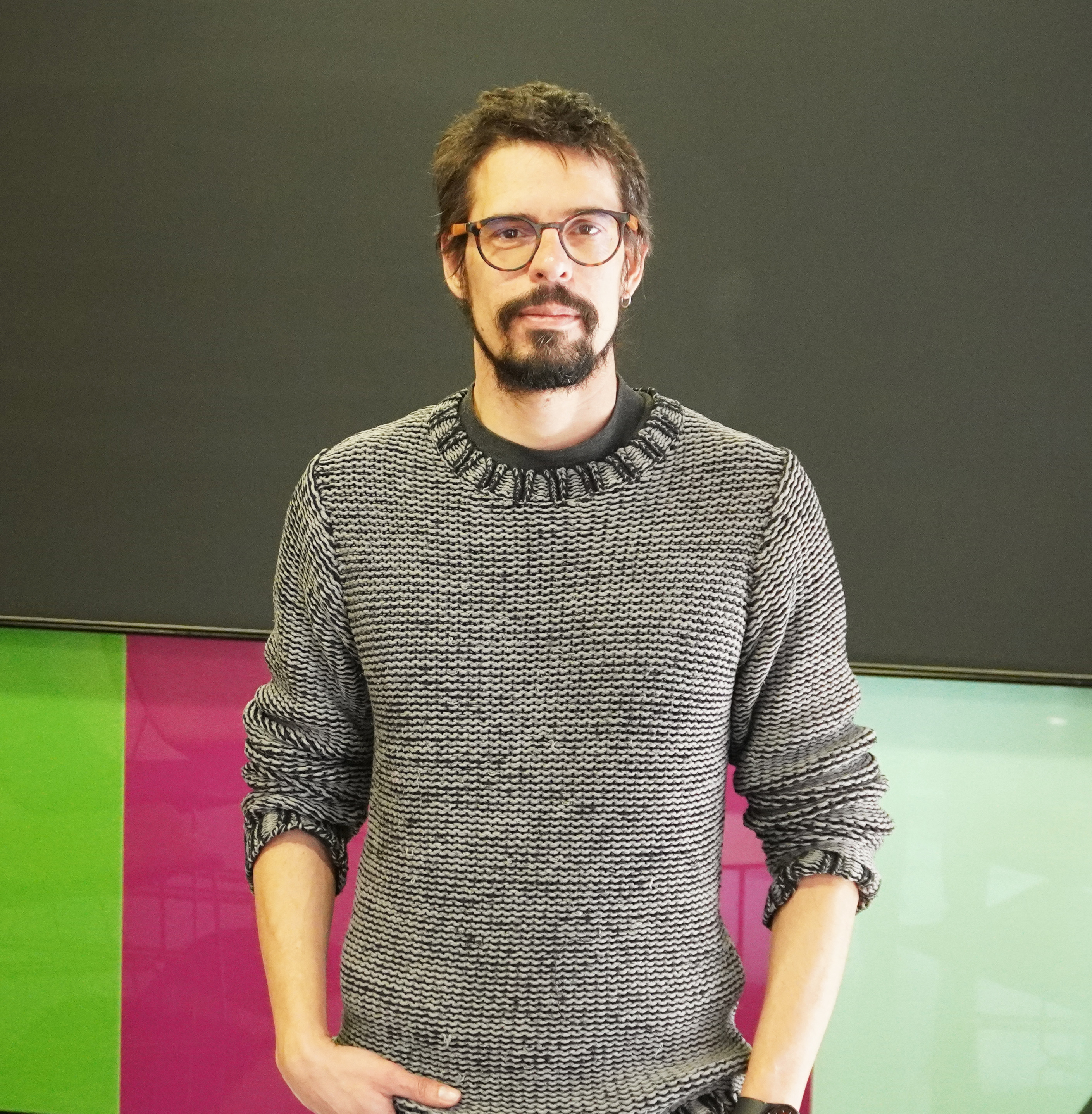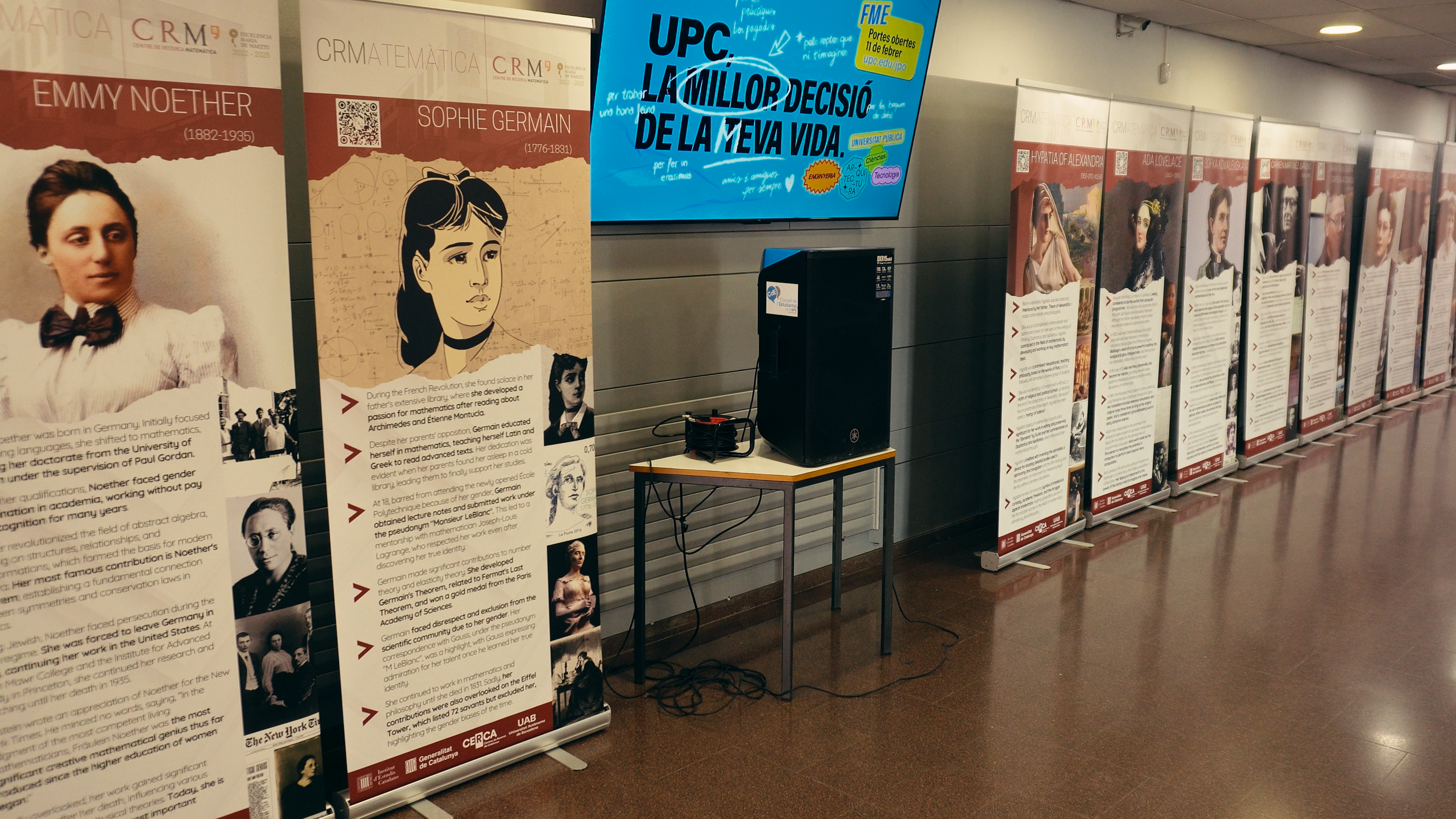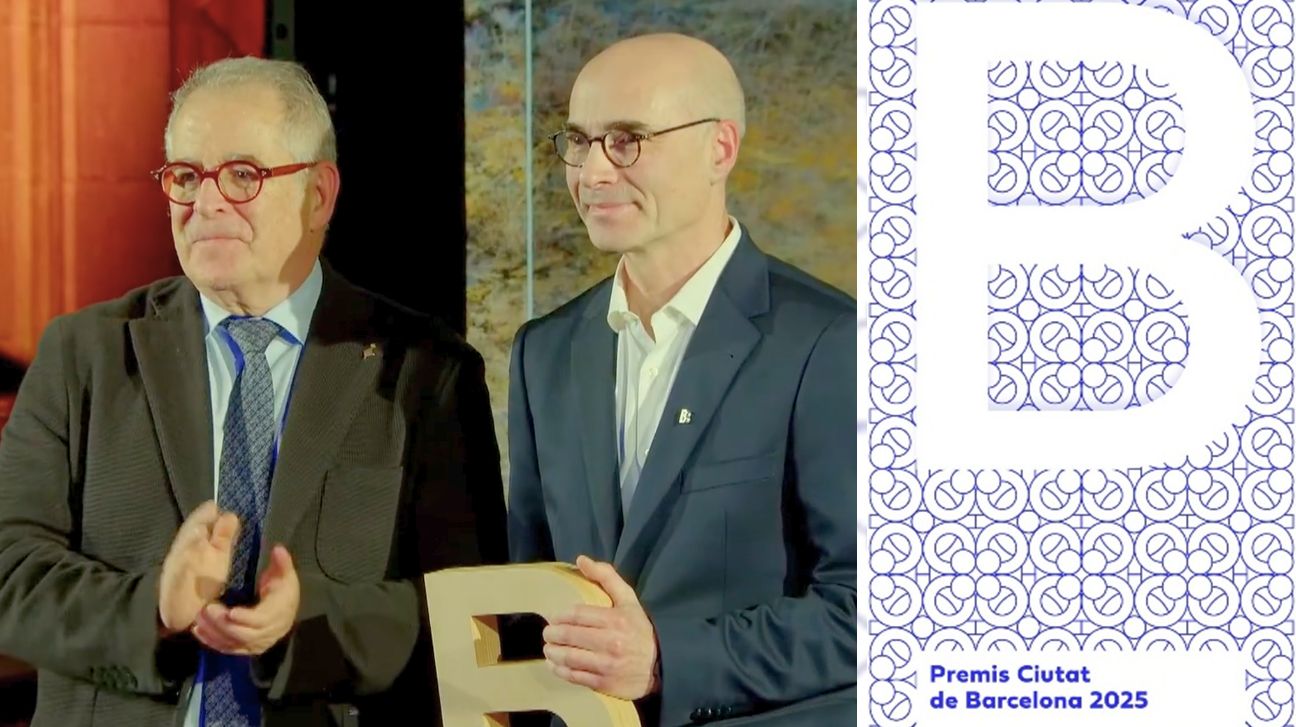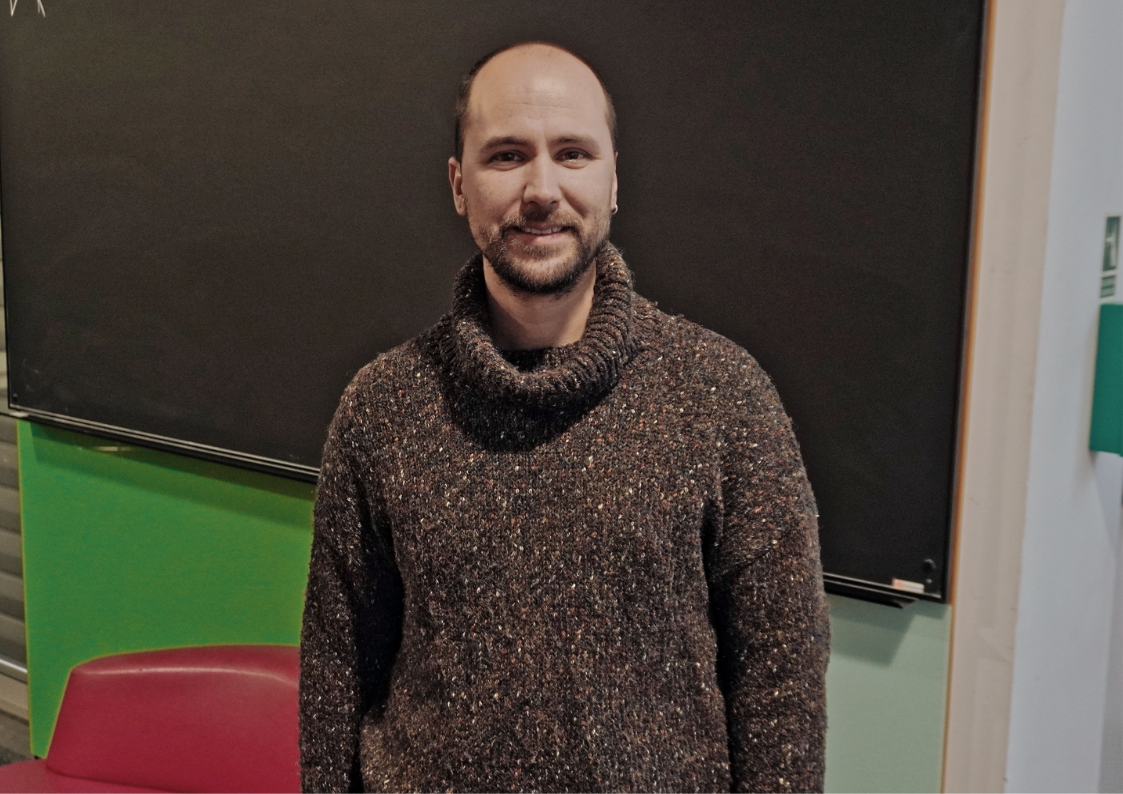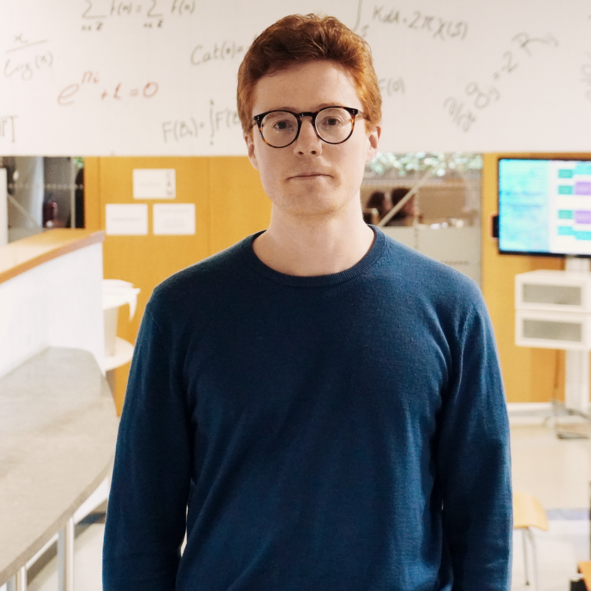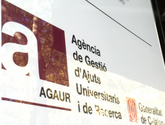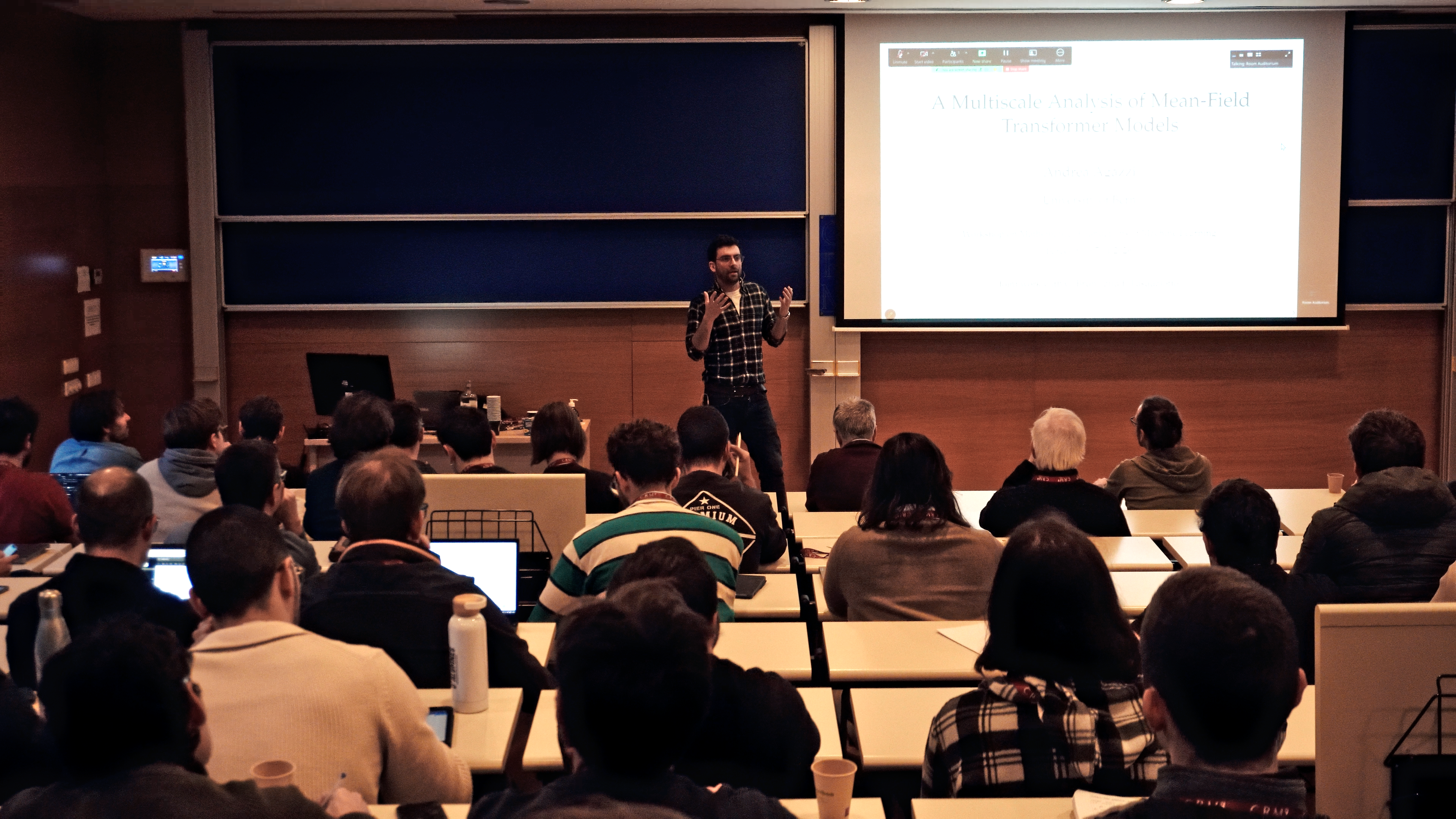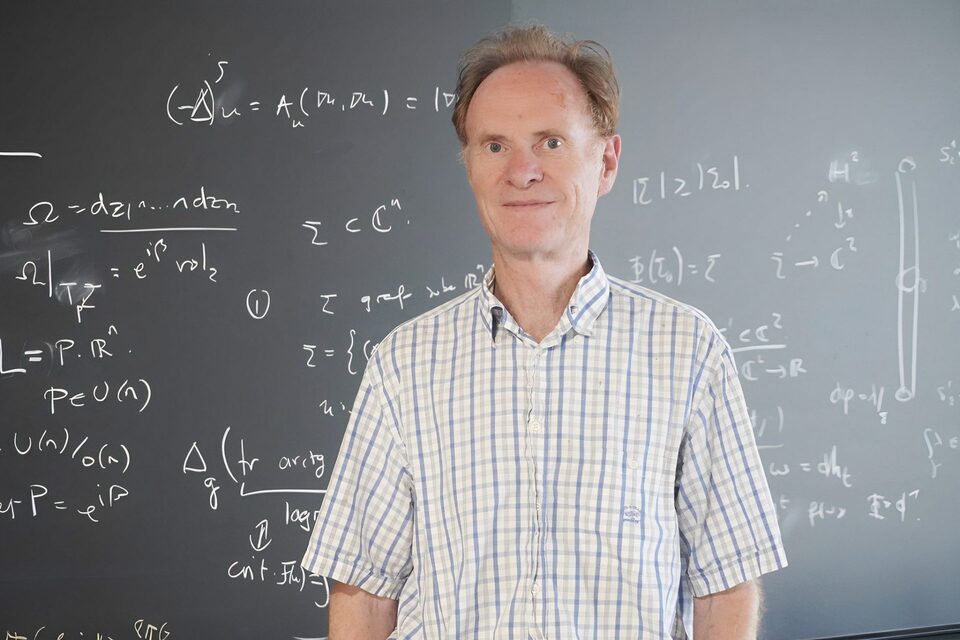
- The CRM Scientific Advisory Board (SAB), comprising distinguished international mathematicians, held its annual meeting from July 8th to 10th, coinciding with CRM’s 40th anniversary, focusing on advising CRM’s strategic direction and evaluating its research program.
- We spoke with Robert MacKay, chair of the Scientific Advisory Board, about the changes and challenges that the CRM has experienced in recent years.
The Scientific Advisory Board (SAB) of the Centre de Recerca Matemàtica (CRM) held its annual meeting from July 8 to 10. As a key body in guiding the centre’s strategic direction and shaping its scientific programme, the SAB plays a crucial role in the CRM’s development. The board comprises distinguished scientists from prestigious institutions worldwide, including Professor Nicolas Brunel from Duke University, Professor Helen Byrne from Oxford University, Professor Albert Cohen from Université Pierre et Marie Curie, Professor Kathryn Hess from École Polytechnique Fédérale de Lausanne, Professor Ari Laptev from Imperial College London, Professor Gábor Lugosi from Universitat Pompeu Fabra, Professor Alessandra Micheletti from Università degli Studi di Milano, Professor Carmen Miguel from Universitat de Barcelona, Professor Peregrina Quintela from Universidad de Santiago de Compostela, Professor Mikhail Sodin from Tel Aviv University, and Professor Katrin Wendland from Trinity College Dublin.
This year’s meeting was particularly significant as it coincided with CRM’s 40th anniversary. Established in 1984, CRM has grown into a leading institution for mathematical research in Spain and beyond. Speaking with Professor Robert MacKay, Chair of the Scientific Advisory Board (SAB) for the past four years and a faculty member at the University of Warwick, he emphasized the board’s role in shaping CRM’s strategic direction.
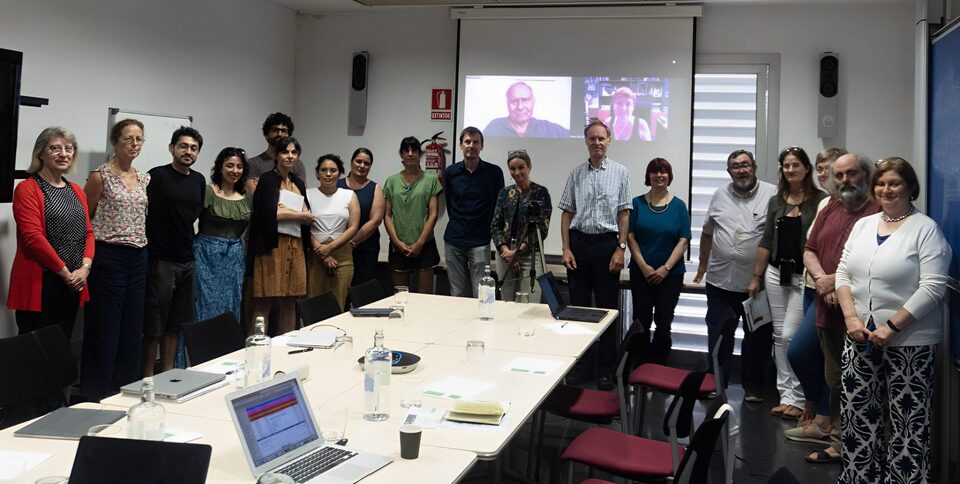
“The role of the CRM Advisory Board is to advise the director and the management of the centre on its research agenda and to carry out evaluations of research done at CRM,” MacKay explained. He highlighted the recent shift towards a more structured assessment process, which now includes formal evaluations of research staff as well as approval of the affiliation of researchers from three of the universities in Barcelona: Universitat de Barcelona, Universitat Politècnica de Catalunya, and Universitat Autònoma de Barcelona.
Navigating Challenges and Embracing Change
CRM has faced numerous challenges in the last few years, particularly in aligning with local, national, and international funding systems. MacKay, who first visited the CRM as an invited researcher in 1987, pointed out that centre “has had to reinvent itself to fit with what the funding agencies would like to see, particularly through the affiliation process.” With over 80 affiliated researchers, CRM boasts a broad range of research topics as well. Balancing this diversity, from pure mathematics to applied fields, requires careful coordination.
MacKay stressed the importance of maintaining an open dialogue between different research groups to encourage interdisciplinary collaboration. “There is a big difference in approach between some of the more traditional “pure” mathematicians and those involved in real-world applications,” MacKay said. “Encouraging more integration is important, as mathematical tools developed for pure interest can often be applied to real-world problems and real-world problems can stimulate new mathematics.”

CRM’s capacity to attract international talent is a testament to its strong research groups and unique opportunities for PhD students and postdocs. The centre provides a distinctive experience compared to classical universities, making it an attractive destination for budding mathematicians. “We had the pleasure of speaking with some of the CRM PhD and Postdoctoral researchers during the SAB meeting. The strong research groups at CRM, including the broader CRM with the affiliations, make it an attractive place to be.” MacKay stated.
Looking to the future, “The opportunity is there to be a leading research centre for mathematics in Catalonia and internationally,” MacKay noted. “The challenges seem to be mainly at the bureaucratic level, in order to obtain funding and make the necessary agreements with agencies and other institutions needed for CRM’s effective operation.”
As CRM celebrates its 40th anniversary, it continues to build on its rich legacy, adapting to new scientific challenges and fostering a vibrant, interdisciplinary research community. The guidance from the Scientific Advisory Board and its members will be instrumental in navigating the path ahead and seizing the opportunities to further consolidate CRM’s standing in mathematical research.
Subscribe for more CRM News
|
|
CRM CommPau Varela & Mariona Fucho
|
When Symmetry Breaks the Rules: From Askey–Wilson Polynomials to Functions
Researchers Tom Koornwinder (U. Amsterdam) and Marta Mazzocco (ICREA-UPC-CRM) published a paper in Indagationes Mathematicae exploring DAHA symmetries. Their work shows that these symmetries shift Askey–Wilson polynomials into a continuous functional setting,and...
Homotopy Theory Conference Brings Together Diverse Research Perspectives
The Centre de Recerca Matemàtica hosted 75 mathematicians from over 20 countries for the Homotopy Structures in Barcelona conference, held February 9-13, 2026. Fourteen invited speakers presented research spanning rational equivariant cohomology theories, isovariant...
Three ICM speakers headline the first CRM Faculty Colloquium
On 19 February 2026, the Centre de Recerca Matemàtica inaugurated its first CRM Faculty Colloquium, a new quarterly event designed to bring together the mathematical community around the research carried out by scientists affiliated with the Centre. The CRM auditorium...
Trivial matemàtiques 11F-2026
Rescuing Data from the Pandemic: A Method to Correct Healthcare Shocks
When COVID-19 lockdowns disrupted healthcare in 2020, insurance companies discarded their data; claims had dropped 15%, and patterns made no sense. A new paper in Insurance: Mathematics and Economics shows how to rescue that information by...
L’exposició “Figures Visibles” s’inaugura a la FME-UPC
L'exposició "Figures Visibles", produïda pel CRM, s'ha inaugurat avui al vestíbul de la Facultat de Matemàtiques i Estadística (FME) de la UPC coincidint amb el Dia Internacional de la Nena i la Dona en la Ciència. La mostra recull la trajectòria...
Xavier Tolsa rep el Premi Ciutat de Barcelona per un resultat clau en matemàtica fonamental
L’investigador Xavier Tolsa (ICREA–UAB–CRM) ha estat guardonat amb el Premi Ciutat de Barcelona 2025 en la categoria de Ciències Fonamentals i Matemàtiques, un reconeixement que atorga l’Ajuntament de Barcelona i que enguany arriba a la seva 76a edició. L’acte de...
Axel Masó Returns to CRM as a Postdoctoral Researcher
Axel Masó returns to CRM as a postdoctoral researcher after a two-year stint at the Knowledge Transfer Unit. He joins the Mathematical Biology research group and KTU to work on the Neuromunt project, an interdisciplinary initiative that studies...
The 4th Barcelona Weekend on Operator Algebras: Open Problems, New Results, and Community
The 4th Barcelona Weekend on Operator Algebras, held at the CRM on January 30–31, 2026, brought together experts to discuss recent advances and open problems in the field.The event strengthened the exchange of ideas within the community and reinforced the CRM’s role...
From Phase Separation to Chromosome Architecture: Ander Movilla Joins CRM as Beatriu de Pinós Fellow
Ander Movilla has joined CRM as a Beatriu de Pinós postdoctoral fellow. Working with Tomás Alarcón, Movilla will develop mathematical models that capture not just the static architecture of DNA but its dynamic behaviour; how chromosome contacts shift as chemical marks...
Criteris de priorització de les sol·licituds dels ajuts Joan Oró per a la contractació de personal investigador predoctoral en formació (FI) 2026
A continuació podeu consultar la publicació dels criteris de priorització de les sol·licituds dels ajuts Joan Oró per a la contractació de personal investigador predoctoral en formació (FI 2026), dirigits a les universitats públiques i privades del...
Mathematics and Machine Learning: Barcelona Workshop Brings Disciplines Together
Over 100 researchers gathered at the Centre de Recerca Matemàtica to explore the mathematical foundations needed to understand modern artificial intelligence. The three-day workshop brought together mathematicians working on PDEs, probability, dynamical systems, and...

